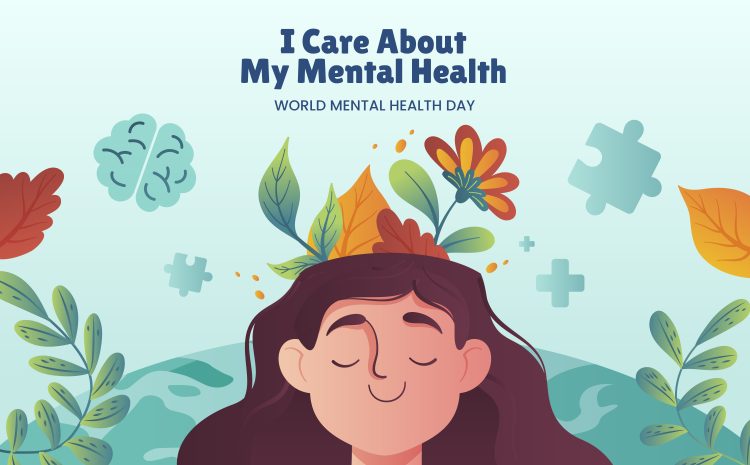Mental Health in India: World Mental health Day 2025

The importance and awareness of mental health has steadily risen in recent times. The American Psychological Association defines mental health as “a state of mind characterized by emotional well-being, good behavioral adjustment, relative freedom from anxiety and disabling symptoms, and a capacity to establish constructive relationships and cope with the ordinary demands and stresses of life”.
Mental Health in India
The current situation of mental health in India requires adequate mental health professionals which are abysmally low. Several reforms are underway to streamline the process of Mental health care in India but a lot of areas are still left undersupervised which currently are the need of the hour.
This year’s theme set by WHO aims at creating the space, the resources and the awareness of mental health care in the current Indian setting.
India’s mental health landscape requires a multifaceted approach, encompassing efforts from childhood setting like psychoeducation in schools, suicide prevention in colleges, and addressing substance abuse among adolescents and young adults and geriatric care in older adults.
However, the conversation often gets stuck when it comes to rural areas, where mental health care is desperately needed. To truly make a difference, mental health services must be integrated into the primary healthcare system, and awareness campaigns should be executed at the grassroots level to eradicate stigma and promote inclusivity. By doing so, we can ensure that mental health support reaches every corner of the country, bridging the urban-rural divide and fostering a more supportive and understanding society
Practical Tips to approach mental health with a balanced, practical and intuitive approach:
Build Social Support
Whenever we talk about mental health we also talk about how the people surrounding us are of the most important aspect in this matter. They are basically the first responders in the time of crisis and how our relationship with our social support works out affects our health, stress, mood and ultimately our quality of life. Also, the number doesn’t matter as much as the quality of connection we have with the people in our social circle, which seems to decrease
Developing Coping Skills
Coping is an important mechanism in mental health care. Coping effectively starts with acknowledging the issue and understanding its nature. Once we’ve identified the challenge, we can explore various healthy coping strategies. What’s essential is finding healthy approaches that work for us, without causing harm in the short or long term. Since everyone’s experiences and coping mechanisms are unique, it’s crucial to prioritize self-awareness, flexibility, and a willingness to try different methods until we find what brings us balance and relief.
Exercise
I understand it seems contradictory that how exercise can play a role in mental health. But research studies prove otherwise. Exercise plays a significant role in mental health by releasing endorphins and serotonin, which can boost mood and regulate sleep. Regular physical activity has been shown to have a positive impact on mental well-being, reducing symptoms of anxiety and depression. Incorporating exercise into your daily routine can be a valuable tool for maintaining good mental health.
Awareness programmes
For us as a community to improve mental health care, we need to break the silence on mental health stigma. When we shine a light on mental illnesses, we can start to dismantle the stigma that keeps us quiet. By normalizing mental health discussions, we can create a ripple effect of compassion and understanding, where seeking help becomes a sign of strength, not weakness.
Community-based care
India is an amalgamation of communities which is the key to spread mental health awareness. When mental health professionals are rooted in the very communities they serve, they bring with them an intimate understanding of the cultural nuances, values, and beliefs that shape the lives of individuals. By harnessing the power of community-based care, we can democratize mental health support, making it accessible to every stratum of society. In doing so, we can nurture a culture of empathy, understanding, and collective well-being, where mental health care is woven into the fabric of community life.
As we strive to build a more advanced, inclusive and progressive nation, let us recognize the importance of mental health and work together to make it a fundamental right, not a privilege, for every Indian

By Ms. Amatulla Vohra
Ms. Amatulla Vohra is a Consulting Psychologist at GSBS Medical Trust. She has been working since 3+ years in the field of mental health and aims at creating inclusive, non-judgemental spaces for all kinds of individuals. She specialises working with Adolescents and Young Adults. Currently, she work with oncology patients helping them with issues related to adjustment, mood disturbances, spiritual care etc.
